Why do some have and many don’t? It’s too easy to blame it on race, religion and politics when it comes to answering that. Hasbeemasputra Abu Bakar examines the phenomenon of economic inequality, the global system that perpetuates it and the destructive path we’re all on if we don’t change course soon.

WHEN LORD BOBO FIRST ASKED ME TO CONTRIBUTE AN ARTICLE FOR A SERIES FEATURING WRITERS FROM EAST MALAYSIA, I hesitated. I did not know if I could put across the ideas I had in a coherent enough manner for people to understand. However, here goes.
Let’s start off by looking at the current state of the world.
- 2.5 billion people lacked access to improved sanitation
- 1 billion children were deprived of one or more services essential to survival and development
- 1 million children under 5 years in developing regions were underweight for their age
- 101 million children did not attend primary school, with more girls than boys missing out
- 22 million infants were not protected from diseases by routine immunization
- 8 million children worldwide died before their 5th birthday in 2009
- 4 million newborns worldwide were dying in the first month of life
- 2 million children under 15 are living with HIV
- More than 500,000 women died (and keep dying each year) from causes related to pregnancy and childbirth
Why?
It boils down to inequality.
This inequality is not in terms of race or religion or of political ideology (which most times are convenient smokescreens), but economic inequality, that leads to positions of differential advantage between people, communities and nations. These people did not suffer or die because the world lacked the resources to improve or save their lives. They suffered and died because they did not possess the money to ‘buy’ access to basic necessities. In other words, these people suffered and died because they were subject to the worst form of violence there is – poverty.
- Source – http://www.flickr.com/photos/stitch/24366332/
Here are some more statistics:
- Over 3 billion people (almost half the world’s population) live on less than US$2.50 a day.
- In 2010, the top 5 military spenders in the world (USA, China, UK, France & Russia) spent a combined total of USD972 billion on arms and military spending.
- 2% of the world’s population owns more than 50% of the total global wealth.
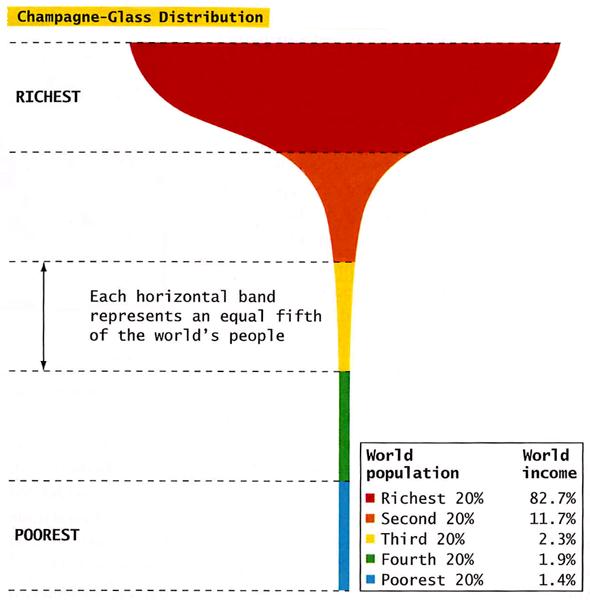
Champagne Glass Distribution from Conley (2008) You May Ask Yourself
Does this make sense? Seeing the inequality yet?
Please don’t get me wrong. I am not speaking perched from atop a soapbox of socialism. This is not a rant against capitalism or the free market – this is just my observation on the state of world. At the end of the day, any –ism is just an intellectual construct, which oft-times has little or no relation to what is actually necessary for human life.
These statistics are important because they show the ‘outcome’ or output of what I refer to as The System – an interconnected man-made ecosystem of multinationals and business interests, government and nations and political parties, all shaped by and also shaping our society, including the theological, metaphysical and linguistic aspects.
By now I hope you’re wondering, why is the world so unequal?
It is unequal because the underlying operating rationale of our civilization is ‘maximum profit, minimum cost’ – no matter what the social or environmental damage. Again, I will remind you that this is not a rant against capitalism. Think about it. Every country in the world (socialist, communist, republic, kingdom, etc.) produces and consumes based on this maxim – “maximum profit, minimum cost”; and the only ‘difference’ between a ‘communist’ state and a ‘capitalistic’ one is the degree of market intervention by the state. The System continually reinforces this maxim throughout all the societal institutions we have constructed – political, legal, religious, societal class and familial values.
This underlying rationale means that jobs will continue to be outsourced as industry continually tries to push their costs down. Anyone reading this ever been subject to downsizing or didn’t get an employment contract renewed?
It means that rivers, forests, the oceans and other natural resources will continue to be exploited to the detriment of the world’s delicate ecosystem as business interests continue to expand the search for resources. Some estimate that 90% of Sarawak’s rainforests are gone. Fresh water crises are cropping up more and more often. More species of flora and fauna are disappearing at a faster rate.
This means that technology which may be more beneficial to humanity like solar power but not as profitable as fossil fuels will be ignored. How long did it take for hybrid cars to be introduced in Malaysia again?

It means that ‘development’ will continue to be foisted onto indigenous tribes all over the world because it is profitable for 2% of the world’s population. How many acres of land in the country have been taken away from the Orang Asal? How many people live in squalor after being forcibly displaced from their ancestral land?
Essentially, this rationale means profit will always come before people.
What kind of effect does this ‘profit-first’ system have on us collectively as a species? Well, are we living in a society where we have to fight for what we get, watch our backs, fend for ourselves, learn not to trust each other or are we living in a society where we depend on reciprocity, mutuality, cooperation, where empathy is important and our security depends on good relations with other people?
I am inclined to think that we are living in the former, leading us to become selfish, self-centered, distrustful, and less tolerant of ‘differences’ and alternative thought. In real world terms, this means more people will have less access to healthy food, and more poor people will have less access to any food at all. It means education will continue to be treated as a commodity, rather than a right, because it is more profitable.
The effects of this profit-oriented system are made worse because of our patterns of consumption, or more precisely, our excessive consumption. Industry spends more time and wastes more resources cultivating and feeding ‘needs’ such as the next new phone, the biggest flat screen television, or the biggest car, rather than concentrating on real needs, such as the need for healthy and reciprocal social relations, healthy food, clean air and quality education. Our whole economic system boils down to what money demand wants to buy, which has nothing to do with need. A person may have great need for access to clean water, but may never have the money demand with which to purchase it.
Few people realize that the progress that our species has made over the past 150 years, which has allowed us to get to this level of excessive consumption, has been solely because of a cheap, abundant supply of oil-based energy. Some, however, hold the opinion that we are already at or near world peak oil production.
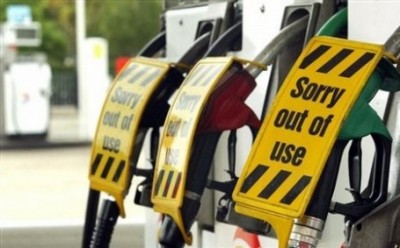
What does peak oil mean for us? We have over 6 billion people living on Earth today, with a possible 9 billion by the 22nd century. Bearing in mind that our global food production is heavily dependent on fertilizers derived from hydrocarbons (which also accounts for 98% of all transportation fuels), a depletion of oil reserves will mean that we cannot support our current population, let alone 9 billion.
Some estimate that by 2050, we will need 60 terawatts “to provide a comfortable first-world lifestyle” to all the planet’s inhabitants. In 2005, the world consumed 14 terawatts of electricity, roughly working out to 220 million barrels of oil a day. Currently, we are producing 84.3 million barrels a day and consuming 84.2 million barrels and the last big oil finds were in 1967 (Alaska), 1968 (Siberia) and 1969 (North Sea), with little possibility of another significant find. Today, over 50 countries are physically producing less oil than they have in the past, including the USA and Great Britain.
This means the world will be embroiled in more ‘resource wars’, masked behind such terms as “democratising the Middle East” or “furthering the cause of justice” or “fighting terror”, which will progressively get worse as supplies dwindle and developed and developing nations fight between themselves – one wanting to maintain an excessive lifestyle, the other to attain it.
And because we are stuck in a profit-first paradigm, what do our leaders suggest as a solution for the coming energy deficit? A nuclear plant, a short term solution at best. Nuclear power cannot produce vinyl and tires for your cars; and it cannot produce the plastics with which we wrap and package almost everything.
And what about the stock markets? Businesses for the most part still operate in a ‘business as usual’ manner, assuming that cheap abundant energy will be available ‘forever’, but it’s not. And as energy supplies dwindle, production will fall and every company listed on every stock exchange in the world will become overvalued. As production falls, so do profits.. and we know what happens next.
So, how do you save the world?
First off, give up on politicians. Don’t put too much hope in appeals made to the power structure that puts it’s own self-interest before everything else.
I am sure there are many sincere and good people who have chosen to operate in the institution of politics, but politics is nothing more than a game to see who controls the means of production and the distribution of resources. And we all know how that games ends up for the people – 2% end up owning 50% of the wealth. Because the rules of the game almost always benefit those in positions of differential advantage, I have more confidence in social movements than I do in politicians.
Secondly, stop consuming more than you need. We’re not going to find another Earth any time soon.
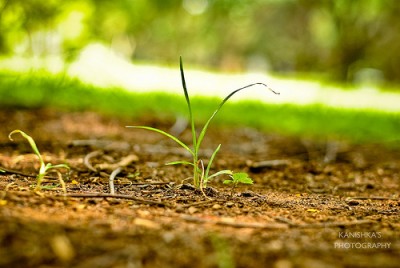
Don’t me wrong. This is not some spiritual call to leave behind the material world. This is not an invitation to don some robes, shave your head and live on a mountaintop. This is a real, physical and an extremely urgent need for us to collectively reduce our consumption levels before we self-destruct.
Help bring equality to the world!
Hasbee has a band and is a bona fide Mat Rock. He is also supremely cool, and tweets @Hasbeemasputra.

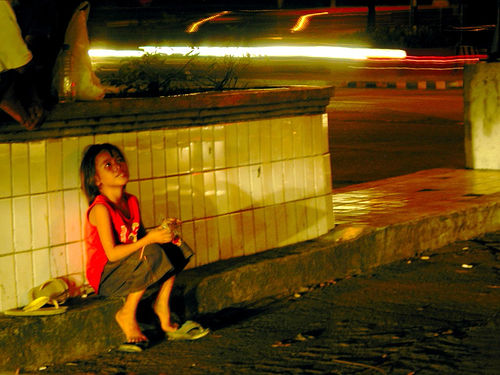
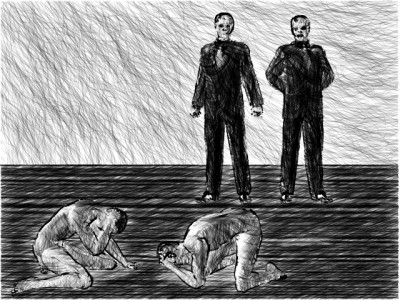
hey hey, it's the first time i have read something from you hasbee…..
well, while you may have addressed economic inequality in the marxian way, (perhaps you don't wanna acknowledge that label? – apologies) but i feel perhaps more can be discuss.. of course i do not intend to shoot you down with criticism or say you miss out this factor this or that. i guess i just wanna add things in the discourse. if i may…
there are probably no doubt that the modern financial system has great impact directly or indirectly on our consuming behaviours, the way we interact with each other, the way we view nature, even the way we fuk, even the way we think. the recent incarnation of this global monetary governance has to be U.S initiated after the WW2, with UN, IMF, World Bank, with it's intention of an U.S lead hegemony, today we see its loosing its grip in terms of economic power,
but yet they still maintain it's influences* (my point is there are other "powers" which are important to understand, and factors to the inequalities) and that is quite clear. you did mention that "the system" is interconnected, i would agree on that but i would also want to note that it is not a singularity, it is a multi force of systems where it does subscribe to the ideological "-ism", here i argue -ism is an important factor that shape our ontological realities. i believe under the hood it may all seem "only profit", but there are ideologies and methodologies strongly imbued in certain western capitalist systems and in any other continents.
i think a particular "righteousness" and justification of the capitalist realities is important to keep the "drive", this uniform sense of expansionism devouring whatever to keep a financial system working, to keep this monster alive. besides nationalism (which is corroding in many developed nation-states) there are other factors to keep control and hegemony, and i believe many are aware of other eco-social-decays we have witness. an ethics to justify the current system of systems requires people to belief is it "good" or feel miserably trap in "reality"- as if there are no other ways out of this fatalism. this forces are fighting against each other, some better, some worse, some whatever, all based on a presumption of what is good and bad.
of course collaboration is there but really, they are people who believes in their "particular hegemony". and whoever triumph will lead to very different evolution of the global capitalist system. for example, to simplified things a little, nation states, or a conglomerate of nation-states (EU, ASEAN etc) are, to some extent have their set of ideological-ism and methodology; for sure, the degree may very a little, but that small degree creates a ripple effect hard to ignore. China for now is creating it's own brand of economic hegemony, and eventually would want to create it's own ideological hegemony, no longer "countries in conflict" will seek EU or the US say, or waiting for their intervention blah blah.
i mean, economic wise, china has loan more money than world bank for "developing economies", the key difference is they don't ask hell what are you doing with the money, that itself is an ideological statement of what you (hasbee) stress "profit-first". but it is not exactly that, china is instilling it's ideas about the world, just as how the west requires this liberal ways, that human rights and so on. now it looks like human rights industry are not so profitable anymore. (not true, i think the west , US, EU will continue using NGOs like the gates foundation, humanitarian aid and such for it's hegemonic presence say in africa. aaaah… okay it's getting too long…. what i am saying in opposite on the sense of "exceptionalism" (meaning trying to make a point that perhaps there are a "key" significant factor, the cause of it all….) i say it is about race, labourers sexism, language, power, fetish, insanity, environmentalism, queerphobia, control, media, and so on, it is not merely a "tool" used by the ruling class, it is also a reality for many people, for the middle class, the working class, the poor who are mostly asleep… (how arrogant of me huh?)
alright i'm done for now…
take care
Norman: Thank you. I have had a few responses via email, which I plan to address in another post.
If anyone is interested in some further reading –
Some salient point from Halting Species Loss Has Economic Benefits
The Commission set a target of halting biodiversity loss by 2020.
It also set a broader goal to restore biodiversity and ecosystem services provided by nature itself, such as air and water purification, by 2050.
“It is a much smarter economic investment to protect the diversity of life and healthy ecosystems … than face tragedy once diversity has been lost,” EU Environment Commissioner Janez Potocnik told a news conference.
Without action from business, as well as proper public policies, species loss will inexorably march on, largely through climate change, invasive foreign species and land-use changes.
Though the concept is abstract, the economic costs of continued species loss are real, according to the Commission and environmental campaigning organizations.
Full article here:
http://www.scientificamerican.com/article.cfm?id=halting-species-loss-has-econonomic
Love your article. Simply, amazing!
Antares, thank you for the very kind words. I like the phrasing of "Acquire & Protect". Very apt. Thanks for the suggested reading material as well. I will try to look it up, and hopefully one day all of us will be attuned & harmonized with creation.
Good thoughtful piece, written with intelligence from the heart of human decency. No need to apologize for ranting against the Profit Motive or sounding like a nature mystic. Left-brained academic types are fond of pooh-poohing any idea that threatens the status quo and their entrenched positions as pundits. It's easy to view them as a corrupt priesthood propping up rapidly collapsing Temples of Mammon even as the resident deity rushes backstage to quick-change into Moloch, the bloodthirsty god of war.
Hasbee, may I recommend a fascinating book that came out 25 years ago? The Mayan Factor ~ Path Beyond Technology by Jose Arguelles (Bear & Co)? Arguelles speaks eruditely about the two prime imperatives underlying "civilization as we know it" – ACQUIRE & PROTECT. All empires and colonies are founded on the principle of "Acquire & Protect." Arguelles then suggests that the Maya did not become extinct; they evolved to a subtler frequency zone and vanished from 3rd Dimensional view simply by practicing the principles of ATTUNE & HARMONIZE. In effect, they focused much attention on attuning their daily activities with celestial phenomena (motion of the Earth relative to the Sun, Moon and Stars) and harmonizing their lives with the cosmic (planetary and galactic) context of existence.
Switching from an attitude of ACQUIRE & PROTECT to one of ATTUNE & HARMONIZE will radically transform the way we experience reality and synchronize our human agendas with our noblest, most divine potentiality.
Adam: I've always thought that the first step towards real equality begins with equal respect. Eradication of starvation and suffering is indeed a noble goal, but hard to achieve if we continue using the same methods to achieve it (the profit mechanism).
I guess one point I failed to stress in the article is that – while we continue doing the work we do in terms of trying to improve the world, we should realize the real underlying reasons for the state of the world itself.
A lot of people tend to work in separate 'spheres' such as politics, socio-economics and conservation, but all 3 are intimately linked; and such a narrow approach will not accomplish much.
Yes, the rich and strong must help the poor and weak to achieve a sense of equality. But like the fingers on our hands, we could never expect all people to be completely equal.
Most importantly, we have to try to eradicate starvation and suffering among all.
You're welcome.
Thank you very much for the clear urgent message.